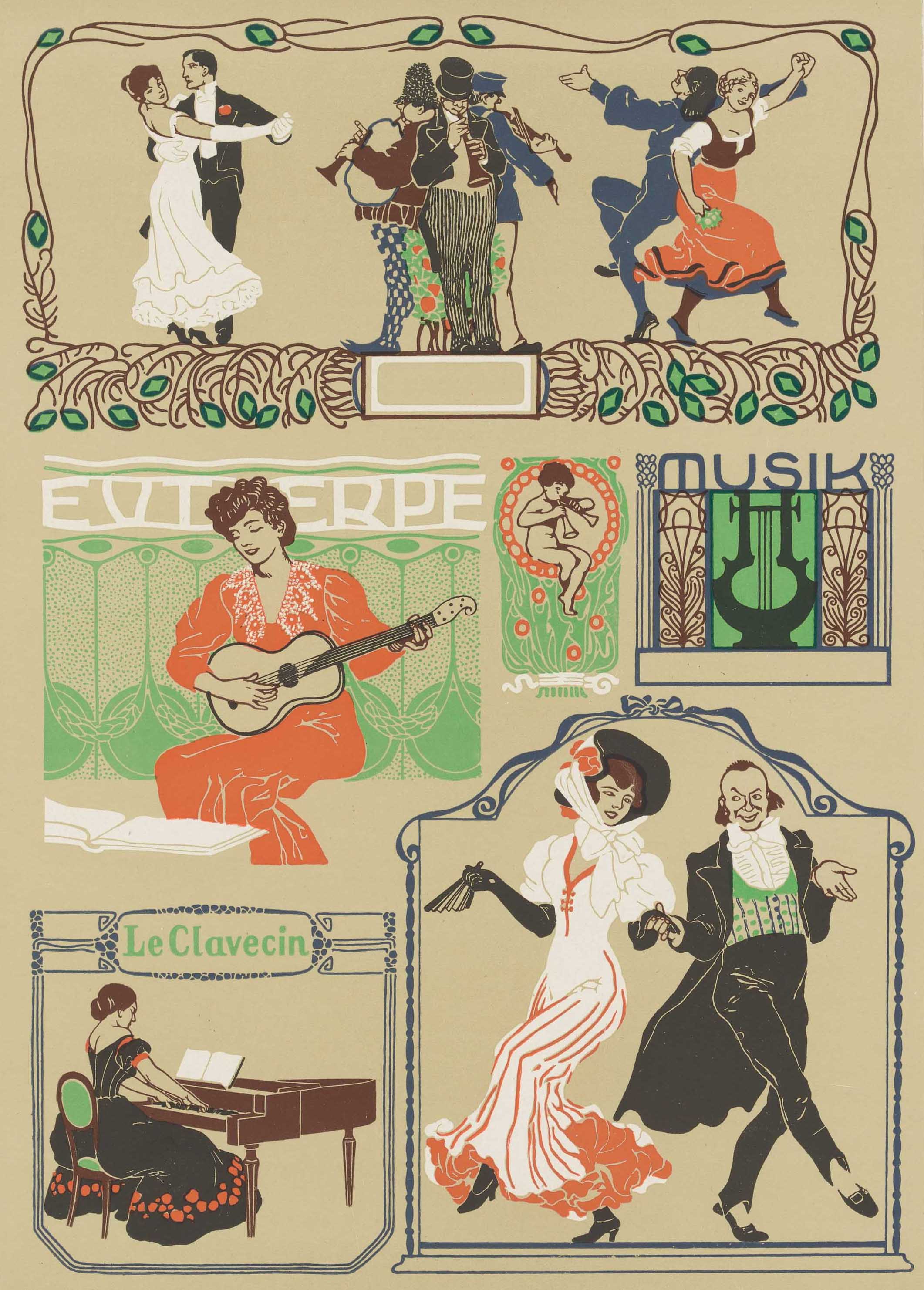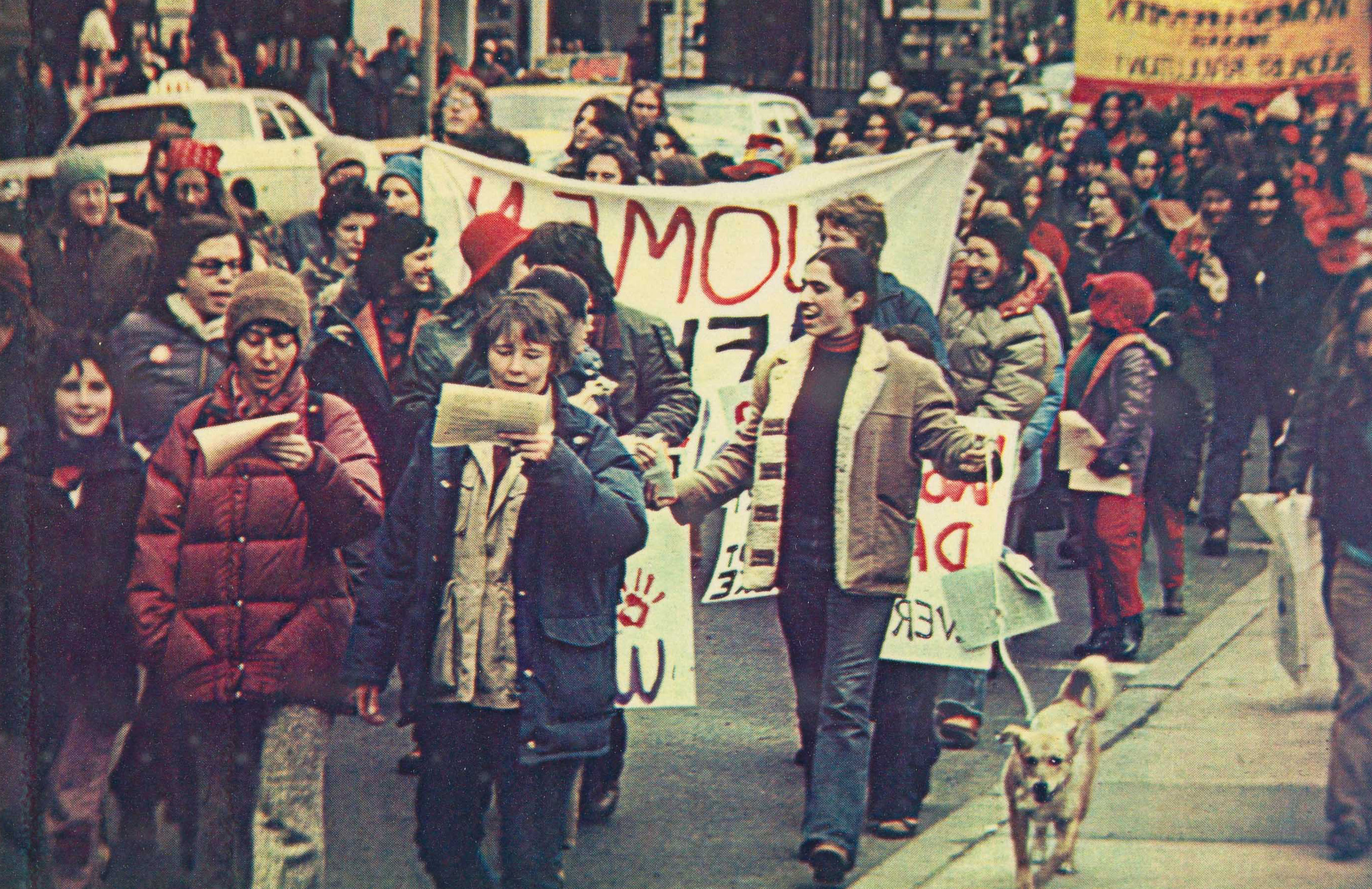Nature and Scope
Explore essential primary sources documenting the changing representations and lived experiences of gender roles and relations, and the struggle for women’s rights, from the nineteenth century to the present.
Introduction
Gender: Identity and Social Change includes primary sources for the study of gender history, women’s suffrage, the feminist movement and the men’s movement. Other key areas represented in the material include: employment and labour, education, government and legislation, the body, domesticity and the family. Explore records from men’s and women’s organisations and pressure groups, detailing twentieth-century lobbying and activism on a wide array of issues to reveal developing gender relations and prevalent challenges.
Talking gender: watch some of the editorial consultants talk about gender history in our video interview feature.
Nature
Gain an insight into changing societal expectations about gender roles through pamphlets, speeches, newsletters, newspaper clippings and more, and explore the life and careers of key figures and pioneers in gender history through personal diaries and correspondence. Also featured is a rich selection of visual material, including photographs, illustrations, posters, scrapbooks and objects.
Key Themes
The documents in this collection cover the following key themes:
- Women’s Suffrage – Gender: Identity and Social Change includes extensive material documenting the international women’s suffrage movement and the fight for voting rights across the globe. Documents feature information on campaigns, activities, organisations, and key pioneers for gender equality, providing an insight into the development of the women’s suffrage movement internationally.
- Feminism – The first wave of feminism started in the late nineteenth century when women began to question traditional gender roles and legal inequality. Second wave feminism emerged in the late 1960s and widened its focus to include employment rights and education. Discover documents detailing nineteenth and twentieth-century lobbying on a wide array of feminist activism and advocacy for women's rights. Discover how gender and race are inextricably linked by exploring documents relating to African American women and the gender discrimination they faced.
- The Men’s Movement – The Men’s Movement emerged in the late 1960s in response to the second wave of feminism. The social phenomenon represents several diverse, unaffiliated networks focussed on differing – and often contradictory – goals. Read newsletters and study conference material from multiple organisations within the Men’s Movement to learn more.
- Employment and Labour – The history of men and women in employment and labour is one fraught with gendered questions about the nature of work, the contrast between paid and unpaid labour, and the divide between public and private work environments. Discover more about changing expectations about gender in the workplace.
- Organisations, Associations and Societies - The history of gender in the nineteenth and twentieth centuries can be broadly traced through the work of various pro-suffrage, Men’s Movement organisations, and feminist groups. The material in Gender: Identity and Social Change contains a vast array of material from organisations that were dedicated to improving the life of men and women across three different continents.
- Education and Training – Looking at education and training through a gendered lens offers extensive possibilities for understanding the opportunities men and women were offered in formal and informal education and in employment. Explore material that offers both a male and female perspective on education and how opportunities were defined by gender.
- Government and Politics – The changes to traditional gender roles and relations can be traced through the actions of those who lobbied the government to make positive change. Read correspondence, reports and accounts, and view the interactive chronology to explore the role of the government in the fight for gender equality. Satirical cartoons can also be viewed in the image gallery to demonstrate the frustration many felt at the lack of change.
- Legislation and Legal Cases – The fight for gender equality was a battle fought in courts of law across the globe. Explore bills and acts that shed light on the legal history of women's suffrage, fathers’ rights and more.
- The Body – Explore gendered perceptions of the body in this resource to critically analyse and challenge traditional views and ideas surrounding gender roles. Learn more about how the body affects our understanding of gender including material on: how we dress our bodies, arguments surrounding abortion, and abuse of the body.
- Sex and Sexuality – “Sex” and “sexuality” are broad terms that can be used to describe gender, physical relations, sexual orientation and self-expression. The material included in this collection tracks the response of various organisations and individuals to sex, sexuality and topics which are sometimes considered taboo.
- Conduct and Politeness – During the mid-nineteenth century there was still a market for advice literature and etiquette books that defined proper conduct and polite behaviour for both the women and men of an expanding middle class. Read texts including: “How to stand correctly”, “How to Serve a Dainty Tea” and “Advice to young men on their duties and conduct in life”.
- Domesticity and the Family – Ideals surrounding domestic and family life are prevalent in nineteenth-century advice literature books, correspondence and diaries. As gender roles began to change discover how family and home life also had to adjust.
- Leisure and Entertainment – Vast changes in traditional roles from the nineteenth century onwards affected the everyday lives of men and women. Leisure activities that were considered appropriate for men and women in the advice literature books of the nineteenth century began to shift. Explore periodicals, printed books and company records to explore these changes.
Scope
Material has been sourced from across the United States, Canada, the United Kingdom and Australia. The earliest documents are from the nineteenth century and the latest from the early twenty-first century.
Source Archives
Material has been sourced from 9 participating institutions:
Schlesinger Library on the History of Women in America
- Sally Fox - Series III, IV, V, VI

- Doris Stevens - Series IV: National Woman’s Party, 1916-1958
- Betty Friedan - Series III: Writing, 1951-1985
- Feminist Ephemera Collection, 1930-2004
- Women's Suffrage Vertical Files
- Equal Rights Amendment Vertical Files
- Claiborne Catlin Elliman papers (1914–1919)
- Margaret Foley papers (1875–1957) - Series III: Suffrage
- Rochelle Ruthchild papers (1966–1980) - Series I
- Advice Literature
- Diaries
- Hooker collection, 1788-1890
- Jane Norman Smith papers, 1913-1953
- Hazel Hunkins Hallinan papers
- Henrietta R. Shattuck 85-M258
- Ellen A. Webster papers, 1863-1965
- B. Laidlow papers
- Marguerite M. Wells papers, 1872-1959
Trinity College, Cambridge
- Papers of A J. Munby. The collection is enhanced with Handwritten Text Recognition (HTR) technology to enable full-text searching of the manuscript material.
Michigan State University Libraries
- Changing Men Collection
- National Conference on Men and Masculinity vertical files
- Newsletters
Hagley Museum and Library
- Kay Brownlee papers
- Nora C. Edwards papers
- Marguerite DuPont Lee scrapbook
- Alice Belin DuPont papers
Bryn Mawr College
- Susan Walker FitzGerald papers
- Women's Suffrage Ephemera collection
- Marion Edwards Park papers
- Mary Garrett family papers
- Carey Thomas Papers
The John Rylands Library, University of Manchester
- Parliamentary Committee for Women's Suffrage
- Manchester Men's League for Women's Suffrage Archive
- Archive of the International Woman Suffrage Alliance
Mary Evans Picture Library, London
- The British Workwoman
- British Workman
- The Queen, The Lady's Newspaper, and Court Chronicler
- Every Woman's Encyclopaedia
- The Lady’s Realm
- Irma and Frances Wright fonds
- Maude and Harold Riley fonds
- Calgary Local Council of Women fonds
- Louise Crummy McKinney fonds
- Business and Professional Women's Club of Calgary fonds
- Canadian Club of Calgary fonds (The Men's Canadian Club of Calgary)
- Edwards, Gardiner family fonds
- Calgary Status of Women Action Committee fonds
- Women of Unifarm fonds
- Dorothy Groves fonds
- and a selection of printed books from the library collection.
The University of Melbourne
- Vashti Collective
- Woman’s Christian Temperance Union of Victoria [Records]
- Vera Scantlebury Brown Papers
- Poster collection
A variety of secondary features provide further tools for teaching and research:
- Highlighted Biographies, Featured Organisations and Thematic Areas to introduce the key figures, organisations and themes represented in the collection
- Contextual Essays from leading scholars
- Video Interviews featuring academics from our editorial board
- Interactive Chronology offering contextual information to support the documents
- Visual Highlights Gallery highlighting photographs, illustrations, poster, objects, and more across the key themes of the collection
Language and Terminology
All editorial decisions relating to this project have been made with great care, consideration and with the utmost sensitivity.
Every care and attention has been paid to preserve the historic authenticity of these documents. Any terminology that may be deemed discriminatory or offensive by present-day principles may have been preserved for the historic accuracy and relevance to that particular document.



